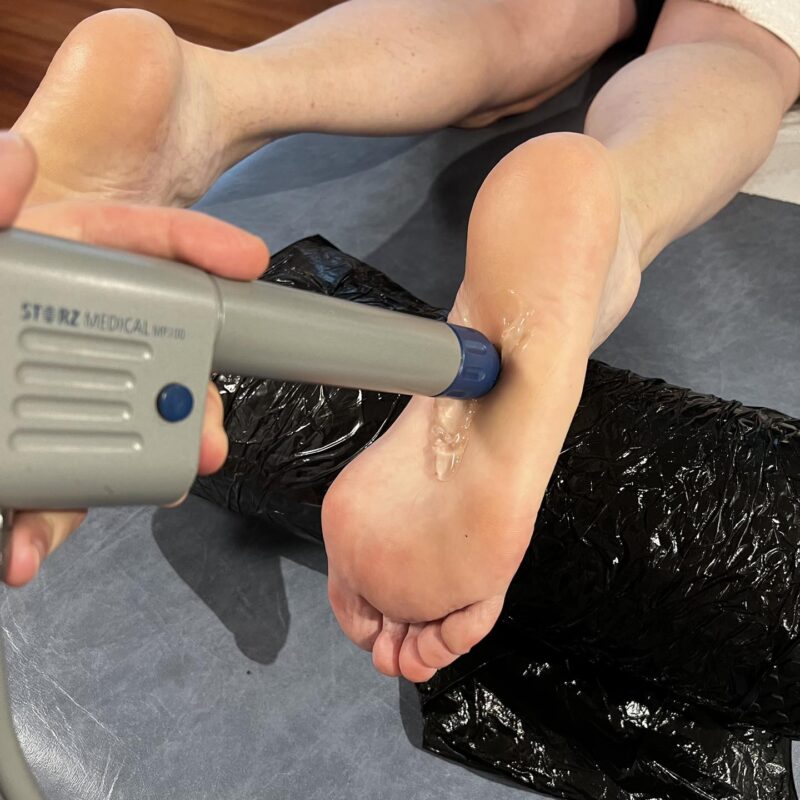Exploring Acupuncture for Effective Management of Skin Conditions
Discovering the Impact of Acupuncture on Dermatological Health

Acupuncture for Skin Conditions is a time-honored technique originating from Traditional Chinese Medicine (TCM), based on the concept that the body has a vital energy, known as Qi, flowing through designated channels called meridians. Disruptions in this energy flow can lead to a variety of health complications, particularly concerning skin conditions. In the realm of dermatology, acupuncture seeks to rebalance this energy by carefully stimulating specific points on the body using fine needles. This method enhances blood circulation, mitigates inflammation, and catalyzes the body’s intrinsic healing abilities.
The skin serves not only as a protective cover but also as a mirror reflecting one’s internal health. Issues such as acne, eczema, and psoriasis often signify deeper imbalances within the body. Acupuncture’s holistic perspective addresses these underlying factors instead of merely providing surface relief. By restoring energy harmony, acupuncture effectively tackles the complex nature of skin issues, fostering not just physical recovery but also emotional and psychological wellness.
Unveiling the Scientific Basis of Acupuncture for Skin Health
The investigation into acupuncture’s effectiveness for treating skin conditions has gained notable momentum recently. Various studies have demonstrated that acupuncture can considerably diminish inflammation and improve overall skin health. A systematic review featured in the *Journal of Alternative and Complementary Medicine* highlighted that acupuncture can alleviate symptoms associated with acne and eczema by regulating immune responses and alleviating stress, a frequent trigger for numerous skin issues.
Furthermore, acupuncture has been associated with enhanced collagen production, which is vital for maintaining skin elasticity and a youthful appearance. Research published in the *International Journal of Dermatology* revealed that individuals undergoing facial acupuncture exhibited improvements in skin texture and a reduction in aging signs. This accumulating body of evidence supports acupuncture’s role as a promising option for addressing a spectrum of dermatological challenges, making it an attractive alternative or complement to conventional treatments.
Comparing Acupuncture with Conventional Dermatological Treatments
The distinctions between acupuncture and traditional dermatological treatments are stark. Conventional methods frequently involve pharmaceutical drugs and topical applications that aim to alleviate symptoms rather than address their root causes. Although such treatments can offer temporary relief, they often come with potential side effects, including skin irritation and hormonal imbalances.
In contrast, acupuncture promotes a holistic healing approach that harnesses the body’s self-repair mechanisms. By targeting specific acupuncture points, practitioners can tackle the emotional and physiological elements contributing to skin issues, resulting in more enduring outcomes with fewer adverse effects. For example, individuals suffering from acne may find that acupuncture aids in hormone regulation and stress reduction, both of which are significant contributors to breakouts, offering a more comprehensive solution than topical treatments alone.
Skin Conditions Frequently Treated with Acupuncture

Acne: How Acupuncture Paves the Way to Clear Skin
Acne ranks among the most prevalent skin conditions, impacting millions globally. Its origin is multifaceted, often stemming from hormonal imbalances, stress, and dietary choices. Acupuncture serves as a powerful ally in mitigating inflammation and regulating hormones, offering an effective treatment avenue for individuals grappling with acne.
The practice targets specific points that influence hormonal balance and reduce inflammation. For example, acupuncture points on the face can enhance blood circulation and promote healing in the skin, while points located on the body may help stabilize the endocrine system, thus minimizing hormonal fluctuations that can aggravate acne.
Furthermore, many practitioners complement their acupuncture sessions with lifestyle advice and dietary recommendations. By addressing lifestyle components such as nutrition, stress management, and sleep quality, acupuncture fosters a comprehensive approach to acne management, ultimately leading to clearer skin and enhanced overall health.
Natural Relief from Eczema Through Acupuncture
Eczema, often marked by dry, itchy, and inflamed skin, presents a significant challenge for many individuals. Traditional treatments generally rely on topical steroids and moisturizers, which can sometimes lead to dependency or skin thinning. Acupuncture emerges as a natural alternative that targets the underlying imbalances contributing to eczema.
Research suggests that acupuncture can alleviate the severity of eczema symptoms by influencing the immune response and enhancing skin barrier function. By stimulating specific acupuncture points, practitioners can diminish inflammation and alleviate itchiness, providing essential relief for those affected by this condition.
Moreover, acupuncture has the potential to improve overall skin hydration and elasticity—both crucial for effective eczema management. Patients frequently report not only symptom reduction but also an enhancement in their quality of life, as acupuncture promotes relaxation and stress relief—two critical factors in handling eczema effectively.
Managing Psoriasis Through Acupuncture Techniques

Psoriasis is an autoimmune disorder characterized by the accelerated growth of skin cells, resulting in red, scaly patches that are often itchy and uncomfortable. While conventional treatments may include topical creams, phototherapy, and systemic medications, acupuncture has gained recognition as a complementary treatment strategy that can address symptoms more holistically.
Studies indicate that acupuncture can modulate the immune system, thereby reducing the frequency and intensity of psoriasis flare-ups. By targeting specific acupuncture points linked to skin health and immune function, this practice helps decrease inflammation and foster skin healing.
Additionally, acupuncture can alleviate the stress and anxiety frequently associated with psoriasis, which can trigger flare-ups. By incorporating acupuncture into a broader treatment strategy, patients may experience improved skin health and enhanced emotional well-being, contributing to an overall increase in their quality of life.
Effective Acupuncture Techniques for Enhanced Skin Health
Facial Acupuncture: A Pathway to Skin Rejuvenation
Facial acupuncture is a specialized approach that concentrates on improving skin appearance by stimulating specific points on the face. This technique not only encourages relaxation but also boosts blood circulation and collagen production, essential elements for maintaining youthful and radiant skin.
The procedure typically involves the insertion of ultra-fine needles into designated acupuncture points on the face. This method can effectively reduce the appearance of fine lines, enhance skin tone, and rejuvenate the overall facial aesthetic. Many practitioners enhance the acupuncture experience with additional treatments, such as facial massage or herbal therapies, to amplify the effects.
Patients often report visible improvements in their skin’s texture and elasticity following a series of facial acupuncture sessions. This non-invasive technique serves as a compelling alternative to more aggressive cosmetic interventions, offering a natural pathway to achieving a youthful glow.
Auricular Acupuncture: Targeting Dermatological Issues Through the Ear
Auricular acupuncture involves stimulating specific points on the ear, which is regarded as a microsystem reflective of the entire body. This technique can effectively address skin conditions by influencing various bodily systems, including the nervous and endocrine systems.
By inserting needles into select ear points, practitioners can tackle issues such as stress and hormonal imbalances that often drive skin problems. Research indicates that auricular acupuncture can alleviate symptoms associated with acne, eczema, and other skin issues by fostering overall balance and promoting relaxation.
This technique is often employed alongside facial acupuncture or other skincare modalities, enhancing the holistic approach to maintaining skin health. Many patients appreciate the convenience and efficacy of auricular acupuncture as it can be seamlessly integrated with other therapeutic practices.
Cosmetic Acupuncture: Elevating Skin Beauty and Vitality
Cosmetic acupuncture is an emerging trend that merges traditional acupuncture principles with aesthetic treatments. This approach aims to enhance skin appearance by stimulating collagen production, minimizing fine lines, and improving overall skin vitality.
During a cosmetic acupuncture session, practitioners insert needles into specific facial points to enhance blood flow and rejuvenate the skin. This process not only elevates skin texture but also addresses underlying factors such as stress, which can contribute to signs of premature aging.
Many patients observe improvements in their skin tone and texture after just a few sessions. Cosmetic acupuncture offers a natural, non-invasive alternative to fillers and Botox, appealing to individuals seeking a holistic approach to skincare without the risks associated with invasive procedures.
Incorporating Acupuncture into Your Comprehensive Skincare Routine
Enhancing Topical Treatments with Acupuncture
Integrating acupuncture with topical skincare solutions can substantially boost overall skin health. While acupuncture targets the internal aspects contributing to skin conditions, topical treatments provide immediate hydration and relief.
To optimize results, consider collaborating with both an acupuncturist and a skincare expert. Together, they can formulate a personalized plan that pairs acupuncture sessions with the application of specific skincare products. For instance, utilizing gentle, hydrating products after acupuncture treatments can help sustain the skin’s moisture balance and facilitate healing.
Moreover, certain ingredients in topical treatments can complement the benefits of acupuncture by delivering vital nutrients to the skin. Products containing hyaluronic acid can enhance moisture retention, while those with anti-inflammatory properties can further alleviate irritation and redness.
Dietary Adjustments for Enhanced Skin Health Alongside Acupuncture
Diet plays a pivotal role in influencing skin health, and integrating acupuncture with dietary modifications can yield profound benefits. Foods rich in antioxidants, vitamins, and healthy fats support overall skin vitality, while specific dietary habits can exacerbate skin conditions.
Acupuncturists often recommend tailored dietary changes based on individual needs. For example, incorporating omega-3 fatty acids from sources like fish and flaxseeds can help diminish inflammation, while minimizing the intake of processed foods and excessive sugars can help prevent flare-ups of conditions such as acne and eczema.
When combined with acupuncture, a balanced diet can significantly enhance the body’s healing processes, leading to clearer, healthier skin. Collaborating with a nutritionist can further refine dietary choices to bolster skin health alongside acupuncture interventions.
Key Lifestyle Changes to Support Acupuncture Treatments
Lifestyle factors such as stress management, sleep quality, and physical activity can significantly affect the success of acupuncture for skin conditions. By implementing thoughtful lifestyle adjustments, patients can enhance their overall health and maximize the benefits of acupuncture.
Managing stress is crucial as it is known to exacerbate numerous skin conditions. Techniques like yoga, meditation, or deep breathing exercises can complement acupuncture by fostering a state of tranquility and balance.
Moreover, ensuring adequate sleep is vital for skin repair and rejuvenation. Establishing a consistent sleep schedule and creating a peaceful sleeping environment can enhance the body’s natural healing processes, making acupuncture treatments more effective.
Regular physical activity also boosts circulation and overall health. Engaging in moderate exercise can help alleviate stress and improve skin appearance, thereby reinforcing the results achieved through acupuncture.
Patient Experiences: Transformative Testimonials on Acupuncture for Skin Conditions
Inspiring Success Stories from Acupuncture Treatments
The remarkable impact of acupuncture on skin conditions is best demonstrated through inspiring real-life success stories. Individuals from diverse backgrounds have reported significant enhancements in their skin health after incorporating acupuncture into their wellness routines.
For example, one patient who struggled with persistent acne recounted how acupuncture successfully diminished the frequency and intensity of breakouts. Following several sessions, they observed not only clearer skin but also a reduction in stress levels, which had previously contributed to their condition.
Another individual dealing with eczema shared their journey of finding relief through acupuncture after years of relying on topical steroids. They reported substantial improvements in their skin’s hydration and a notable decrease in itchiness, allowing them to enjoy life without discomfort.
These testimonials highlight the holistic benefits of acupuncture, showcasing its potential to enhance both physical symptoms and emotional well-being.
Visual Evidence: Before and After Acupuncture Treatments
Visual documentation can be particularly compelling, and many acupuncturists maintain records of their patients’ progress through before-and-after photographs. These images serve as powerful testimonials to acupuncture’s effectiveness in treating skin conditions.
Patients frequently share their experiences on social media or clinic websites, showcasing the impressive transformations they have undergone. Such visual evidence emphasizes the gradual improvements in skin clarity, texture, and overall health achieved through consistent acupuncture treatments.
This documentation not only serves to inspire others considering acupuncture but also reinforces confidence in its efficacy. Observing real results from actual patients underscores acupuncture’s potential as a viable treatment option for those facing a range of dermatological challenges.
Managing Expectations: Understanding Results in Acupuncture Treatments
Establishing realistic expectations for acupuncture treatment is essential for ensuring patient satisfaction. While many individuals experience significant improvements, results can vary depending on personal circumstances, including the severity of the condition and overall health.
Typically, patients begin noticing changes after a few sessions; however, optimal results may take several weeks or even months of consistent treatment. Open communication with the acupuncturist is crucial; patients should feel comfortable discussing their goals and any concerns throughout their journey.
It’s important to recognize that acupuncture aims to address the root causes of skin conditions, which often necessitates a holistic approach. Incorporating lifestyle modifications, dietary changes, and other complementary treatments can enhance the effectiveness of acupuncture, leading to more sustainable results.
Choosing the Right Acupuncturist for Your Skincare Needs
Key Qualifications and Specializations to Consider
When searching for an acupuncturist to address skin conditions, it is vital to evaluate their qualifications and areas of expertise. Seek out practitioners with formal training in acupuncture who are licensed by recognized regulatory bodies.
Specialization in dermatology or experience treating specific skin conditions can be advantageous. Many acupuncturists pursue continuing education through workshops and courses focusing on the convergence of acupuncture and dermatology, enhancing their capability to deliver effective, targeted treatments.
Additionally, consider reading reviews or testimonials from former patients. Positive feedback regarding a practitioner’s skill and success in treating skin issues can provide valuable insights into their competence and methodology.
Essential Questions to Ask Before Commencing Acupuncture Treatment
Prior to initiating acupuncture treatment for skin conditions, it’s crucial to ask several pertinent questions to ensure the practitioner aligns with your needs. Inquire about their experience with specific skin issues and their general approach to treatment.
Ask about the expected duration and frequency of sessions, as well as the anticipated timeline for observing results. Gaining insight into the practitioner’s treatment philosophy can help align your expectations and objectives.
Feel free to discuss any concerns or previous experiences with acupuncture. A good acupuncturist will be open to your inquiries and provide comprehensive answers to ensure you feel assured and informed throughout the treatment process.
Understanding Costs and Insurance Options for Acupuncture
Grasping the financial aspects of acupuncture treatment is essential for patients contemplating it for skin conditions. The cost of acupuncture can fluctuate widely based on location, practitioner experience, and treatment length.
Many insurance policies cover acupuncture, particularly when utilized for specific medical conditions. It’s wise to reach out to your insurance provider to clarify coverage details and ascertain whether pre-authorization is required.
Additionally, some practitioners offer package deals or sliding scale fees, making acupuncture more accessible to a broader audience. Discussing payment options upfront can empower you to make informed decisions regarding your treatment plan and budget.
Frequently Asked Questions
Which skin conditions can acupuncture effectively treat?
Acupuncture can effectively manage a range of skin conditions, including acne, eczema, psoriasis, and dermatitis, by addressing underlying imbalances within the body.
In what ways does acupuncture enhance skin health?
Acupuncture promotes skin health by improving blood circulation, reducing inflammation, and balancing hormones, contributing to clearer and healthier skin.
Is acupuncture a safe option for treating skin issues?
Yes, acupuncture is generally regarded as safe when administered by a qualified and licensed practitioner, with minimal side effects compared to many conventional treatments.
How many acupuncture sessions are typically necessary for skin improvement?
The number of sessions needed varies by individual and condition severity, but most patients begin to notice enhancements after 4-6 sessions.
Can acupuncture be used in conjunction with other skin treatments?
Absolutely! Acupuncture can be effectively combined with topical treatments, dietary modifications, and lifestyle adjustments to optimize skin health.
What can I expect during an acupuncture session?
During a session, you will discuss your concerns with the practitioner, who will insert fine needles into specific points. You may feel a slight sensation, but it should not be painful.
Are there any side effects associated with acupuncture?
Side effects are rare; however, they may include mild bruising, soreness at the needle sites, or temporary fatigue. These effects are generally short-lived.
How does facial acupuncture differ from standard acupuncture?
Facial acupuncture specifically targets points on the face to improve skin appearance, while standard acupuncture addresses overall health and various body conditions.
Can acupuncture assist with stress-related skin issues?
Yes, acupuncture effectively reduces stress levels, which is beneficial for managing stress-related skin conditions such as acne and eczema.
How can I find a qualified acupuncturist for my skin concerns?
Look for a licensed acupuncturist with experience in dermatology. Reading patient reviews and inquiring about their treatment approach can also aid in your decision.


























6 Comments
I find the connection between acupuncture and skin health so intriguing! It’s fascinating how our skin can reflect our internal state, almost like a barometer for our overall well-being. I’ve personally experienced how stress and diet changes can lead to flare-ups, making me wonder about deeper energy imbalances too.
You’ve touched on a key point that many overlook: the interplay between our internal states and skin health. It’s interesting how stress can influence hormonal balance, which in turn might trigger those flare-ups you mentioned. Acupuncture can help address these imbalances by promoting a more harmonious flow of energy throughout the body, often leading to noticeable improvements in skin conditions.
I’m glad you found the connection so intriguing! If you’re curious about exploring how acupuncture can help balance those energy imbalances and improve skin health, check out this resource for more insights.
https://mcrtherapies.co.uk/fb
Your exploration of acupuncture’s role in managing skin conditions really resonates with me. It’s fascinating how intertwined our internal health is with what manifests on our skin. I’ve personally found that when I’m stressed, my skin reacts in ways that are anything but pleasant. It makes so much sense that addressing the root causes, like energy imbalances, could lead to improvements.
It’s fascinating to see how acupuncture can bridge traditional practices with modern dermatological concerns. I’ve always believed that how we treat our skin reflects our overall well-being, and this perspective really supports that idea. I’ve had personal success treating my own sensitive skin issues with acupuncture, and it felt like more than just a physical treatment; it addressed my stress levels too.
I found your exploration of acupuncture’s role in managing skin conditions quite thought-provoking, especially the concept of Qi and its importance in Traditional Chinese Medicine. It resonates with my own experiences with holistic health practices. A few years ago, I was struggling with persistent eczema that traditional treatments weren’t helping. In my quest for relief, I stumbled upon acupuncture, and it completely changed my perspective on skin health.
I find it fascinating how acupuncture connects the health of our skin to internal imbalances. It reminds me of how stress can manifest in our skin through conditions like acne or eczema. I’ve been curious about trying acupuncture for my own skin issues, especially after hearing success stories from friends who claim it helped clear their skin by addressing not just the symptoms but the underlying causes. Have you noticed any common trends in which specific skin conditions respond best to acupuncture? It seems like a perfect example of how Eastern and Western approaches to health can complement each other. Looking forward to hearing more thoughts on this!